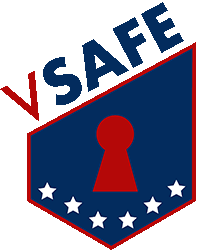Common Schemes
It’s important to know about these common schemes in case someone invites you to join in or if you notice any suspicious activity. Indicators of potential fraud include the following:
- Requesting you to cancel your current mortgage payments and send the funds to someone other than your current loan servicer.
- Using another Veteran’s disability status for property tax exemption.
- Pretending to be an accredited VA home loan servicer, leading to confusion among potential borrowers.
- Pressuring you to sign documents you haven’t had a chance to read thoroughly or that you don’t understand.
- Charging illegal upfront fees for mortgage assistance relief.
- Paying the first and last month’s rent upfront but finding out that the property isn’t available for rent is a scam, and you could lose your money.
- Promising to fix up your home and asking for payment up front.
- Overcharging for completed work or never completing the work that’s been paid for up front.
- Posting rental listings for properties that aren’t actually available to rent; sometimes for places that do not exist.
- Proposing loan modification in exchange for immediate payments to third parties.
- Recommending services or loans that originate from unsolicited calls or text messages.
Tips to Avoid Scams
Do’s
- For help acquiring VA services, make sure to confirm accreditation and validity. If you plan on working with a Veterans Service Organization (VSO), agent, or attorney, use the Office of General Counsel Accreditation tool to confirm and validate their credentials.
- Save receipts for any money paid for services. Track receipts to help you monitor expenses, validate payments, and provide proof of disputes for services rendered.
- Check with multiple lending institutions for rates and fees. When searching for a loan provider, it’s important to read reviews, confirm accreditations, and compare offers. This helps you catch any red flags that one lender may have by comparing them to others.
- Review written documents and fine print to spot hidden fees, charges, or terms that were not originally disclosed. These fees often take borrowers by surprise and can add up quickly.
- Shop around when refinancing. Whether you’re looking for an Interest Rate Reduction Loan (IRRL) or refinancing a VA loan, compare free quotes from multiple lenders and against your current loan. Read about misleading VA home loan refinancing schemes in VA News for more information.
- Be cautious of renting from someone inquiring if VA will pay to fix a rental home.
- Research rental listings and landlords. Search online for the rental’s address, plus the name of the property owner or rental company listed. Look for the property listing on the rental company’s website. If other ads come up for the same address, but with a different owner or rental company name, that’s a sign of a scam.
- Get help from reputable sources. Find a housing counselor through the Department of Housing and Urban Development’s (HUD) list of approved housing counseling agencies to find a counselor in your state. Visit the Department of Veterans Affairs (VA) site for information on navigating VA home loans. Find more mortgage resources through the Consumer Financial Protection Bureau (CFPB).
- Take the time to do a reverse image search to verify the source of the listing image on any rental properties or homes for sale where prices seem lower than market value. If the image is used for other listed properties or is a stock image, it is a sign of a scam.
- Know that legitimate callers will generally not use pressure tactics or demand immediate payment.
- Verify the caller is an authorized representative of your lender by contacting your lender at a telephone number you know is accurate.
Don’ts
- Do not pay upfront for help filling out VA housing assistance applications and recertifications. While you can pay someone to assist you with these forms, the VA provides the housing benefit and eligibility forms for free on their website.
- Do not pay the full amount for a home repair project up front. Contact your state or local consumer agency to find out what a contractor can legally ask for as a down payment. And never make the final payment until the work is done and you’re satisfied with it.
- Do not sign over the title to your property. The title of the property is proof of your ownership. No legitimate home loans or services will require you to sign over the title of your property.
- Do not pay upfront for promises of mortgage assistance relief. It’s illegal for companies to charge you before they help you.
- Do not share personal account information. Legitimate loan and mortgage processors will require some personal information in order to move your application. However, you should never be asked to share bank account, VA account, or other government benefits account log-in information such as your username or password during any housing application process.
- Do not pay for a rental property you’ve never seen. And never pay someone you’ve never met in person. If you’re too far away to see the home, ask a friend to check it out for you, or keep looking.
- Do not give out personal information to a lender or servicer who contacts you out of the blue. Scammers can fake phone numbers, so you cannot always rely on caller ID. If you’re concerned, call your loan servicer directly at the number on your mortgage statement.
- Do not allow a friend, family member, or anyone else to use your information to get disabled Veteran status for property tax reduction.






